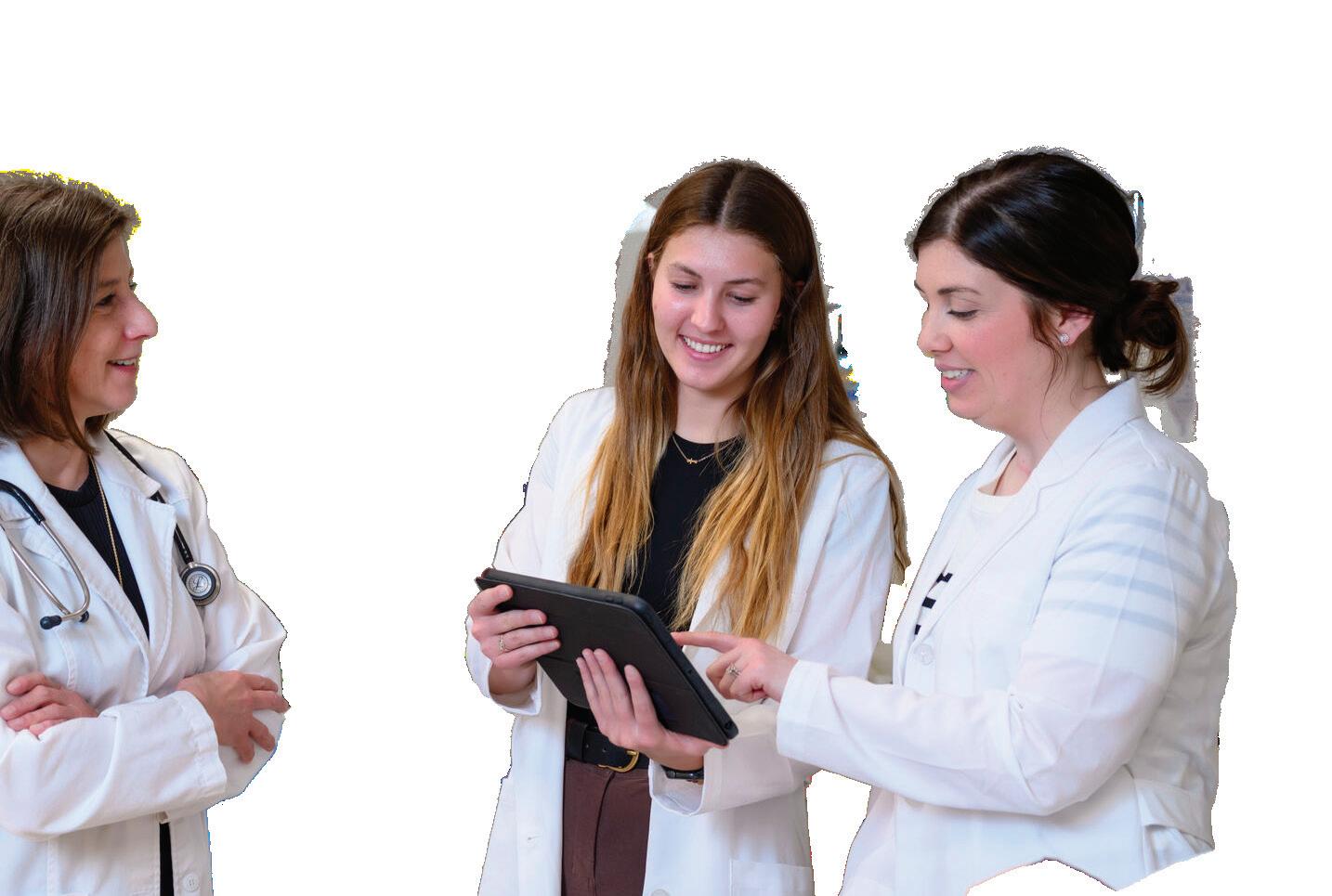
Serving our students together
INNOVATIVE IDEAS AND PHILANTHROPY ARE SETTING NURSING STUDENTS UP FOR SUCCESS
Brian J. Bruess, Ph.D. President, College of Saint Benedict and Saint John’s University
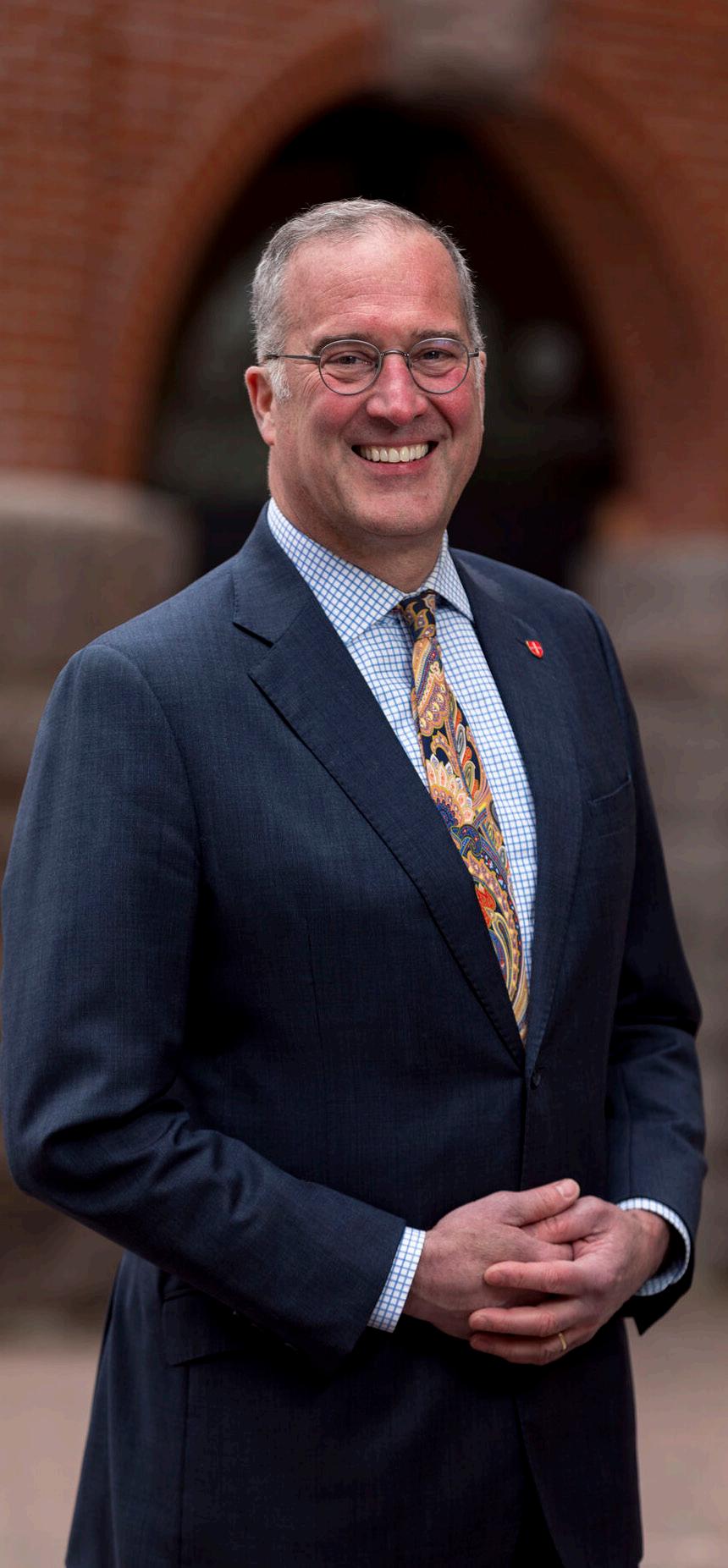


Serving our students together
INNOVATIVE IDEAS AND PHILANTHROPY ARE SETTING NURSING STUDENTS UP FOR SUCCESS
Brian J. Bruess, Ph.D. President, College of Saint Benedict and Saint John’s University

At the College of Saint Benedict and Saint John’s University, innovation is never pursued for its own sake. It grows from our mission to form graduates who think deeply, act with integrity, and engage the world with care and creativity. Our nursing program embodies this spirit in remarkable ways.
This fall, we joined with partners across St. Cloud to provide health services through the Salem Community Outpost on the city’s east side. Staffed by CSB nursing students and faculty, the outpost expands access to care for neighbors in need – while also providing our students the realworld experiences they require.
Whether it’s learning about the social determinants of health, building cultural competence or gaining hands-on practice in clinical settings, our students are integrating knowledge with action in ways that transform both their own lives and those of the people they serve.
Our faculty, too, bring their expertise and deep sense of vocation into this work. Jennifer Kelm Peterson ’98, an alumna who now directs our graduate nursing program, is just one example of the many educators who model excellence, compassion and innovation. Her leadership ensures that our programs not only meet, but anticipate, the evolving standards of health care education.
This spirit of forward-thinking innovation is also reflected in the support we receive from our philanthropic partners. Thanks to a recent grant from the Morgan Family Foundation, we are building a new end-of-life curriculum for our undergraduate nursing students. This addition responds directly to new accreditation standards and equips future nurses with the skills and empathy to accompany
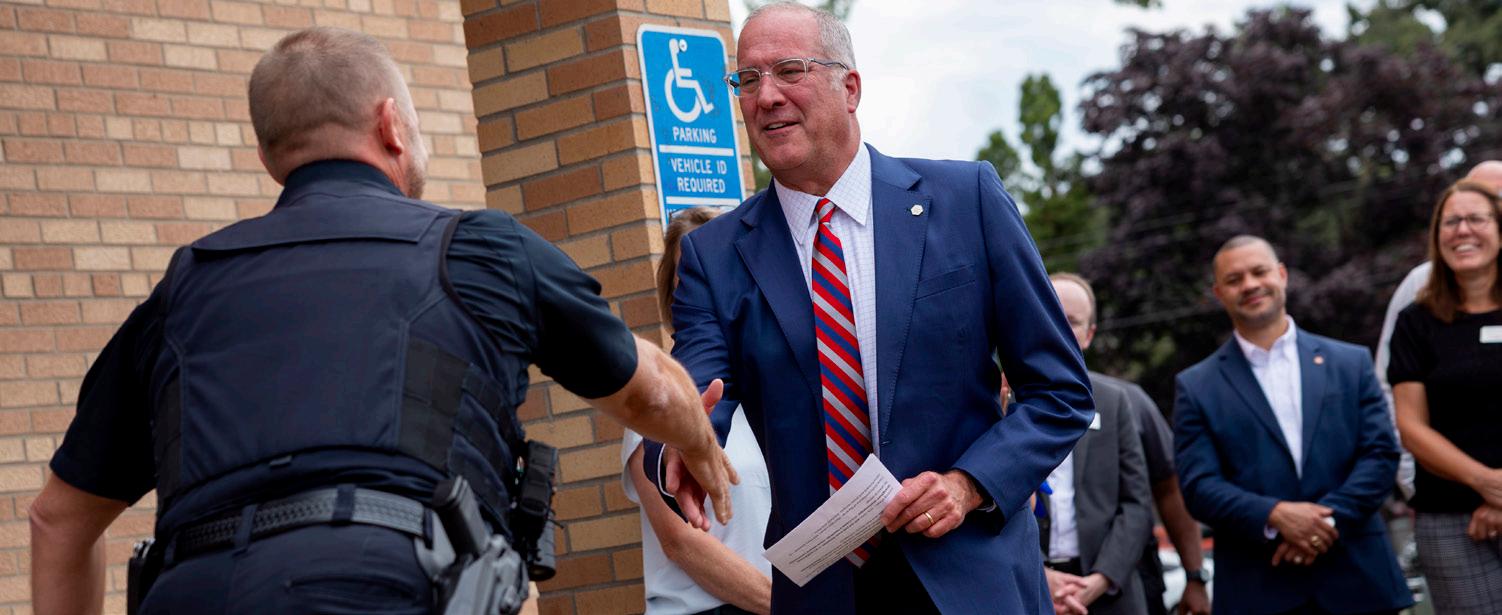
patients and families through life’s most profound moments.
Together, the Salem Community Outpost and the Morgan Family Foundation’s investment remind us of an essential truth: Meeting the curricular needs of our students is never just a box to be checked. It is an opportunity to extend our mission into the world – preparing graduates who combine technical expertise with the human touch, and who will go on to make a
difference wherever they serve.
As we celebrate these milestones, I’m filled with gratitude – for our students, our faculty, our community partners and our generous supporters. All of them are helping to ensure that Bennies and Johnnies continue to flourish as health care professionals and leaders of character.
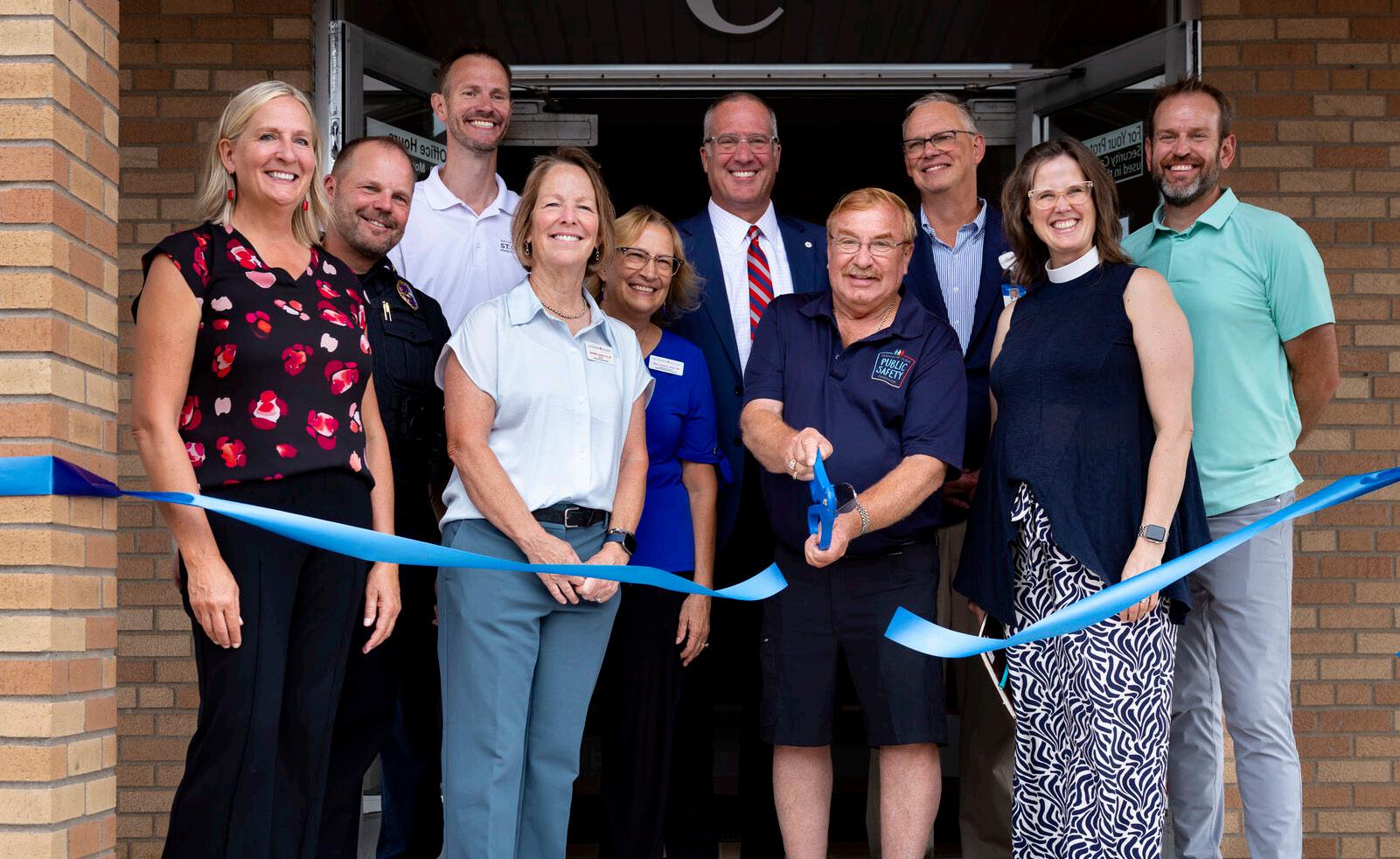
Graduate and undergraduate nursing students at the College of Saint Benedict and Saint John’s University are now getting hands-on clinical work as part of a new community outpost on St. Cloud’s east side.
The health-focused Salem Community Outpost – which is being housed in the Salem Lutheran
Church building – is a community partnership between Salem, the CSB and SJU nursing department,
CentraCare, the Greater St. Cloud Public Safety Foundation, the St. Cloud Police Department and other community partners.
It includes free services provided by nursing department faculty members and graduate students with the help of St. Cloud Hospital’s Project H.E.A.L.
Senior undergraduate students are also assisting, engaging in preventative and educational health activities.
“It will be a free clinic,” said Jennifer Peterson ʼ 98, DNP, FNP-C, APRN, CNOR, chair of the graduate nursing program at CSB. “The graduate and undergraduate nursing faculty and students will be volunteering their time. CentraCare and other health care organizations in the community are supporting this initiative with assisting in the initial clinic set up and donation of supplies.”
As Peterson explains, the advantages of the clinic from a curricular standpoint are clear. “For both graduate and undergraduate students, we have competencies that we have to meet within our curriculum which focus on health promotion and the social determinants of health. And in a community-based health clinic, you’re able to learn about the social determinants of health, especially as they relate to providing health care.”
Up until this point, the nursing department has worked with different sites and agencies to find those opportunities for undergraduate and graduate students. With this clinic, “from a curricular perspective, we’re able to give students the opportunities and experiences we know they need – especially related to health promotion and the social
determinants of health, while giving back with service to the area community,” says Peterson.
One of the drivers behind developing the clinic is the requirement that graduate (family nurse practitioner) faculty maintain clinical practice. “You can stay licensed as an RN and not work in a hospital setting or clinic setting as an RN,” says Peterson. “But in a nurse practitioner role, with advanced practice, you have to maintain clinic practice to remain licensed. This can be challenging for faculty to find those places to do that in addition to being a faculty member. And then it can be challenging for us to find clinical placements for our students, because they’re very selective. They’re harder to find and secure.
“The question we had was what if we could be involved with a clinic where we could meet both goals by allowing faculty to see patients and then also giving students opportunities to see patients being precepted by the faculty?”
The fact that CSB guarantees clinical placement for graduate students is a key recruiting point. This clinic helps us empower that promise.
Peterson and her colleagues are looking for even more from the future. “Now the undergraduate piece has come into it and we’re providing opportunities for all our nursing students. We’re hoping that eventually that will grow to other areas of the college and provide opportunities for students in other departments, not just nursing.”
When the Saint Ben’s faculty-led clinic opened this fall in the Salem Community Outpost, undergrad senior Bennie and Johnnie nursing students had a solid blueprint to map out their roles.
And that’s primarily thanks to a current Saint Ben’s junior nursing student: Alaynna Kriz ʼ27.
Alaynna spent the summer researching what the undergraduate positions will entail, as well as what services are most needed in the neighborhood surrounding the clinic.
“I took the community health assessment data, kind of got a rough idea of what the biggest concerns were for the population in that area, and then I got out face-toface with the community,” says Kriz.
“I was chatting with local businesses and people who have been there for a long time. Community health assessment data is helpful, but not everyone has a permanent
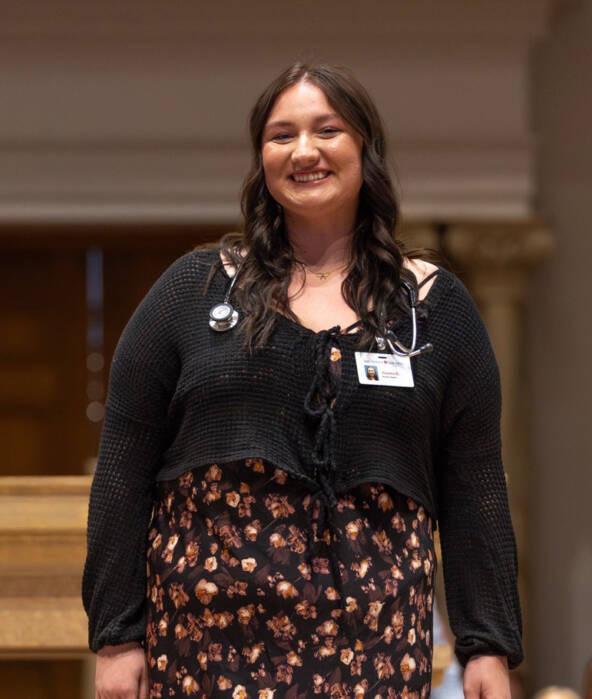
address to receive that form. Not everyone answers honestly. Those assessments aren’t necessarily sent in language-inclusive options. There are a lot of barriers to numbers and data in health care.”
She boiled those conversations down into a list of about 12 of
the biggest health care concerns for the area (things like mental health, substance use and social connection), then developed a provider manual for the undergraduate students to use.
“Because I was asked to develop the undergraduate role, I wanted to make sure we were training our young health care providers to treat whole patients,” she says. “So it has guiding questions and conversation starters for each issue – transportation, experiencing homelessness, lack of insurance, health literacy. … So you get the whole picture of your patient.
“As students, we hear a lot about social determinants of health. But I don’t think we really learn how to have those real conversations with patients – because it can be uncomfortable.”
After spending the bulk of her summer embracing her admitted love for public health, Kriz acknowledges that she’s a bit of a rare breed. “Most nursing students want all the code buttons and IVs,” she laughs. “For me, I want people to be seen as people. My main goal for this summer was to make sure I was putting my best foot forward, being culturally aware, being engaged with the community and the relationships they had already established with the people in that area – so they would know I wasn’t trying to give them something they didn’t need.”
Kriz’s project was one of 13 this summer being sponsored by the Office of Undergraduate Research and Scholars (OURS) at CSB and SJU. Each summer, the office provides collaborative grants to studentfaculty teams, helping them to complete a summer research project.
“It was nice to be able to work and not have to worry about [finances],” says Kriz. “I wouldn’t have been able to do this if it weren’t for the money and the housing and the community I was in.”
At the end of her summer project, Kriz presented her findings on campus along with other OURS scholars. “Then I will be presenting to all nursing department faculty and staff at an upcoming meeting. I’ll present again in the spring at Celebrating Scholarship and Creativity Day. And I already had the chance to present at Salem Lutheran Church and give them a basic orientation of what things are going to look like at the clinic, since that is their space that’s being leased and used for this purpose.”
“Where I wanted to be”

Jennifer Kelm Peterson ’98 has become a valued faculty member and chair of Saint Ben’s first graduate program. But it was head basketball coach Mike Durbin who actually got that ball rolling.
“Back in the day, I was a basketball player,” says Peterson. “And Mike Durbin was very convincing in getting me to come to campus. And once I came for a visit, I felt very welcomed and I felt like people cared whether or not I came to school here. So that was how I decided to come.”
Much to Durbin’s chagrin, she didn’t stick with basketball. But she did stick with Saint Ben’s.
Peterson started her undergraduate path as a biology major on a pre-med track but felt hesitant about it almost from the start. “I come from a
long line of nurses in my family,” she confirms.
So, out of curiosity, she scheduled a meeting with the chair of the nursing department. “She was just the kindest person I think I had ever met,” recalls Peterson. “And after that meeting I thought, this
is where I need to be. These are my people.”
She switched her major, earned her degree and headed into the world as a registered nurse. “Working in education wasn’t something I had really thought about,” she says. “But at the point I started teaching, my goal immediately became getting back to Saint Ben’s. I remember saying, ‘If I’m going to be teaching, that’s where I want to do it.’ I absolutely loved college at Saint Ben’s. I loved being in the nursing program. I just loved all the opportunities it provided me, and this is where I wanted to be.”
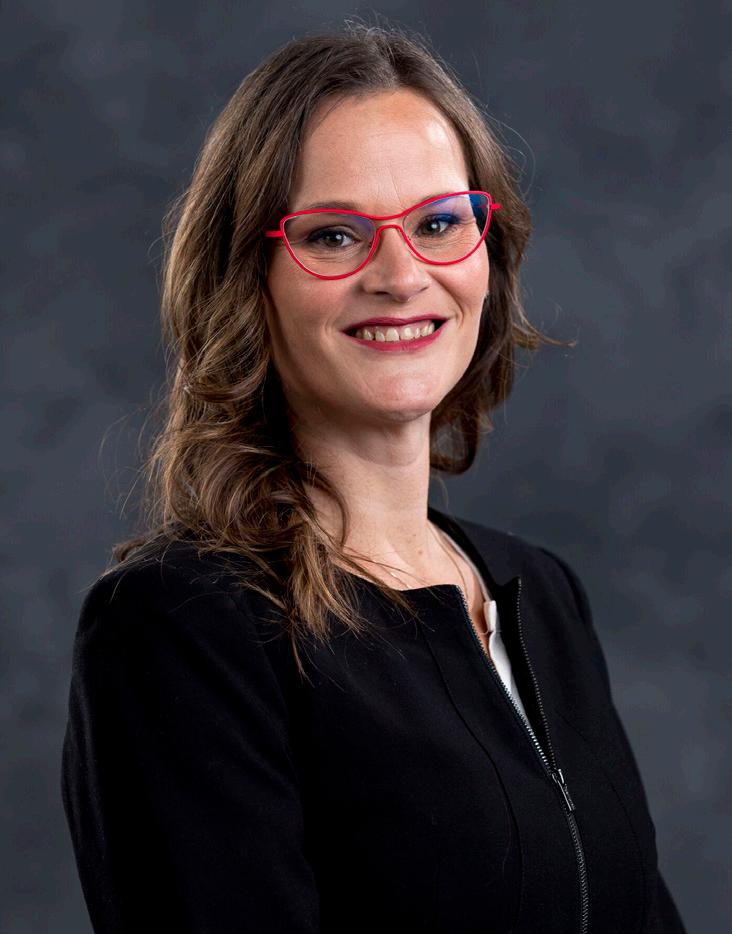
In 2020 that role arrived when Peterson was selected to direct the development and launch of the graduate nursing program – the first advanced degrees offered by the College of Saint Benedict. Peterson credits her faculty colleagues with seeing her potential as both a faculty member and a leader.
In 2011, Peterson made that wish come true. She returned to CSB and SJU to join the faculty – while working to complete her master’s degree – and has been here ever since.
She earned that Master of Science as a family nurse practitioner in 2013 and then proceeded to earn her Doctor Of Nursing Practice in 2016. She was intent on growing to serve in a leadership role within the faculty.
“Ever since graduating as a family nurse practitioner, I’ve maintained part-time practice in some capacity in family practice or urgent care settings,” Peterson says. “And now that I’m teaching in the graduate program, I am required to maintain part-time practice for my license and program accreditation. So, you could say that I am blessed to have had the opportunity to wear a lot of hats in my role over the years since 2013.”
“If you’ve never experienced death, and the first time you do is when you are the RN on night shift … it’s really hard,” explains Mary Pesch.
That’s what drove nursing faculty to expose students to these situations, so they can develop some language and awareness, says Pesch, DNP, MPH, APRN, FNP-BC, visiting assistant professor of nursing at CSB and SJU.
“Another piece is that the American Association of Colleges of Nursing (AACN) updated their competencies in 2021. There are now four spheres of care, one of which is hospice and
palliative care, which incorporates advanced-care planning.”
Schools like CSB and SJU now need to make sure we cover these subjects in our curriculum. Accrediting bodies are looking for them.
Fortunately, there was a local partner with a keen interest in helping CSB and SJU make that happen in our undergraduate nursing program. The Morgan
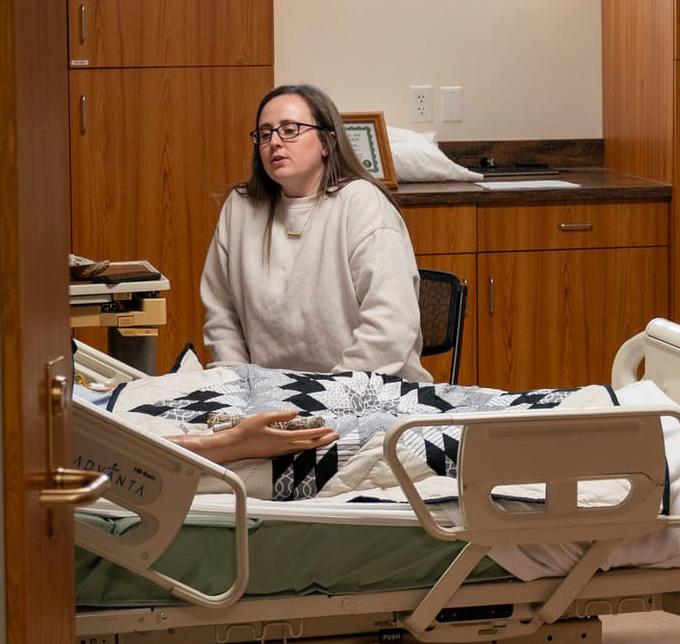
Family Foundation (MFF) generously delivered a grant specifically for end-of-life curriculum development.
“(The Morgan Family Foundation) has three focus areas,” says Jama Mohamed, program officer for the MFF, “and one of them is end-of-life issues. A lot of nurses find themselves in a situation where they’re dealing with the death of a patient and they just haven’t learned a lot in college.”
The foundation’s grant covered some equipment expenses in the purchase of a more advanced simulation mannequin and medication delivery system, and supported the development of culturally diverse training simulation scenarios.
is Catholic and sisters from Saint Benedict’s Monastery play the family members. The third simulation features an Ojibwe patient. “As faculty we can work with our students in the simulated environment to guide them in handling these situations,” says Pesch.
Pesch, working with instructors
Julie Keller Dornbusch and Anne Backes, as well as graduate student Jodi Olson (DNP ’25), has implemented the curriculum and simulations. “At the end of the day,” she says, “what the students discover is, they need to ask what is important to the patient and family, culturally and spiritually.”
In one simulation, the patient is Muslim and Somali community members volunteer to act as family members. In another, the patient
Beyond the undergraduate curriculum, Pesch says this improved training will impact graduate nursing students as well. “Grad students currently have a ‘difficult conversation’ simulation where they have to break bad news. We want to create a simulation that extends that into an advanced-care planning, where they practice these discussions with their patients. We can have patient actors simulate being ready for planning and others that want nothing to do with it.”
It’s been a distinct advantage having a partner like the Morgan Family Foundation that is so committed to this work. Foundation co-founder Vicki Morgan explains that end-of-life care and advanced-care directives have been personal passions of hers for years. As a young member of the Quaker meeting in Yellow Springs, Ohio, she volunteered to chair the burial committee – essentially serving as funeral director for the community. In that role she saw the genuine importance of an advanced-care directive, and it has stuck with her.
“In 2020, the foundation put together our Vision 2025 and narrowed our focus,” she says. “I was passionate about having endof-life be one of our major areas of focus, because I just saw the need.”
Annual Giving 37 South College Avenue St. Joseph, MN 56374
Please direct questions to 800-648-3468, ext. 3, or mutsch@csbsju.edu